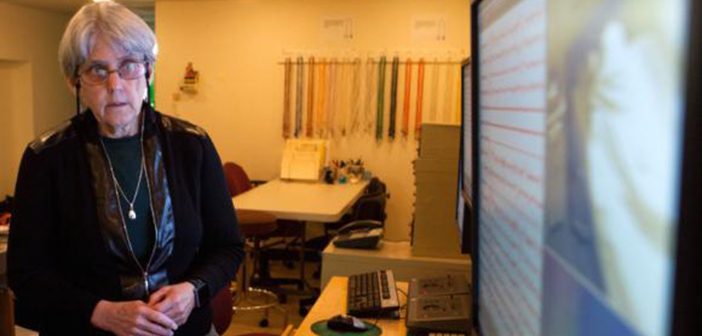Early school starts pit teens in a conflict between society, biology.
The idea of sleep is supposed to evoke feelings of peace, relaxation, and refreshment, but when expert Mary Carskadon, PhD, talks about teen sleep in school districts with early start times, she uses far less comfortable words.
“Social policy clashes with what we see from the biology,” says Carskadon, a professor of psychiatry and human behavior at the Warren Alpert Medical School. “For teens, when they have not gotten enough sleep and they have to get up too early, they are crushed in the morning.”
Over decades of study, Carskadon has shown that two systems that regulate sleep, circadian rhythms, and sleep pressure, both change as children grow up. While they still need the same amount of sleep throughout childhood—ideally 9 to 10 hours—older kids naturally become inclined to go to sleep later (as their circadian rhythms skew later). That means they become biologically predisposed to sleep later, too, to fully relieve that sleep pressure—or biological need to sleep. Yet society frequently requires that they wake early.
“They are incredibly sleepy from the sleep pressure, but also they have to be at school at a time when their circadian system wants them to be asleep,” she says.
The issue is a hot button in several states, including Rhode Island where a newly proposed law would set a statewide high school start time of 8:30 a.m.
Read more here.




